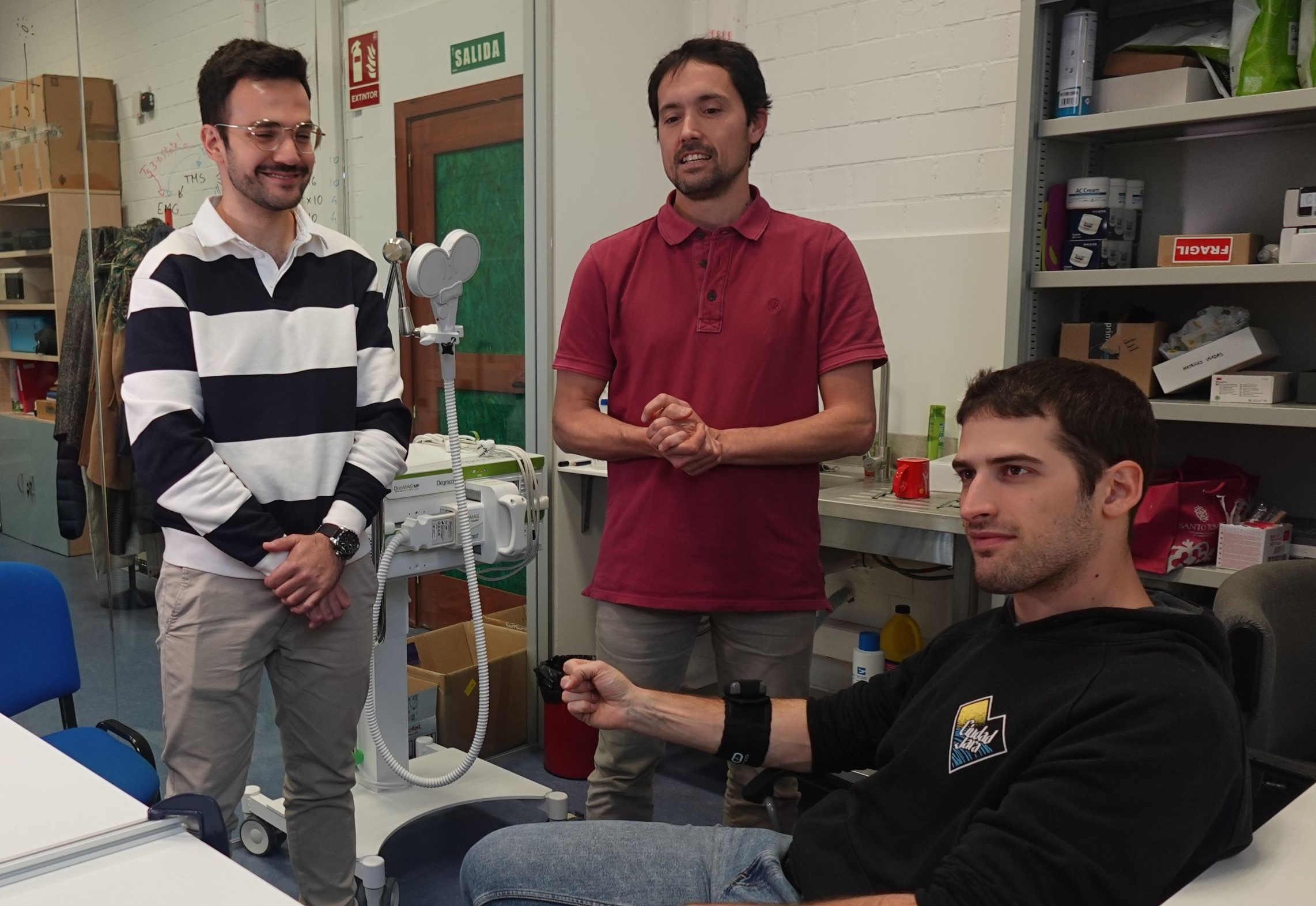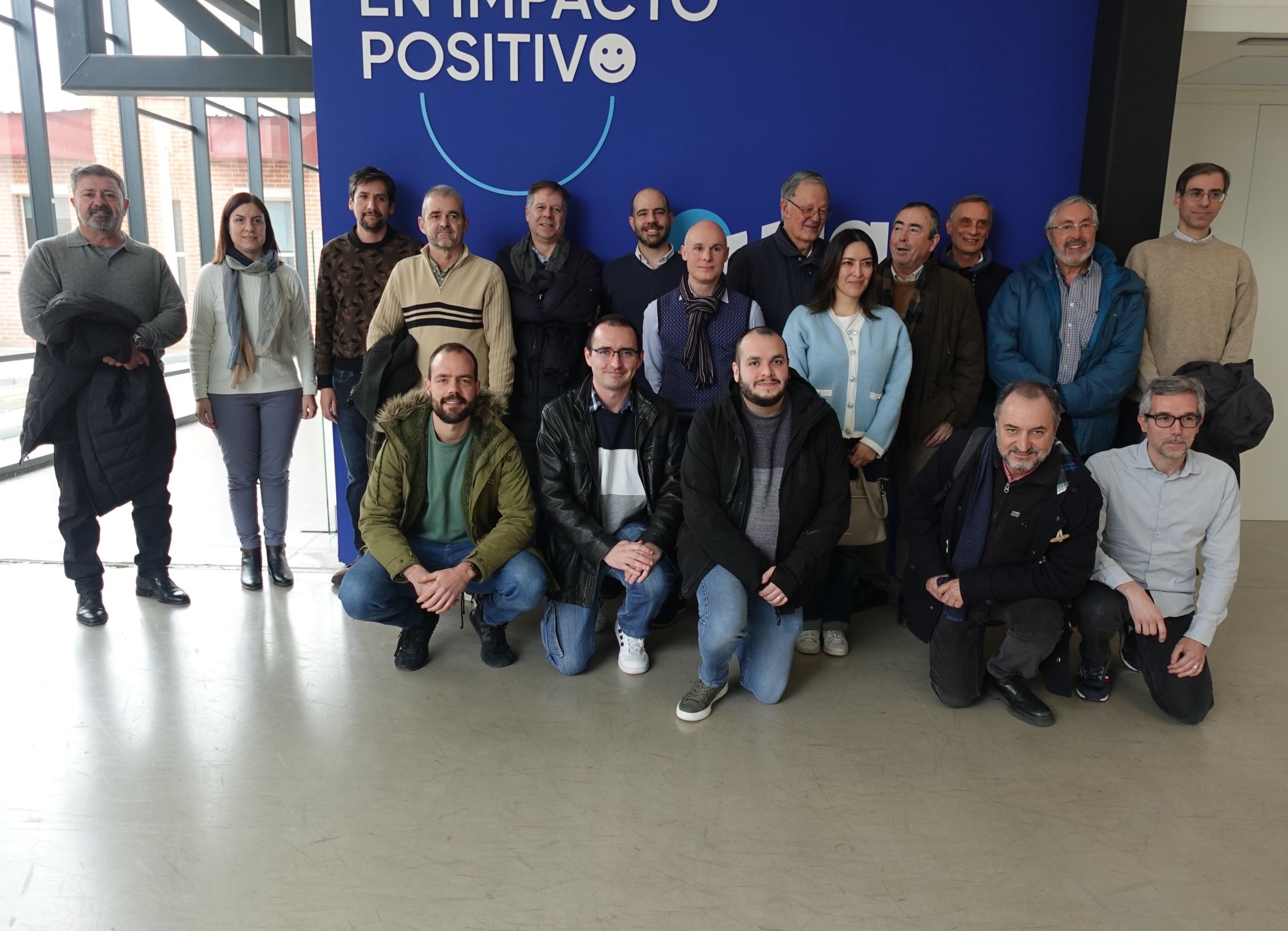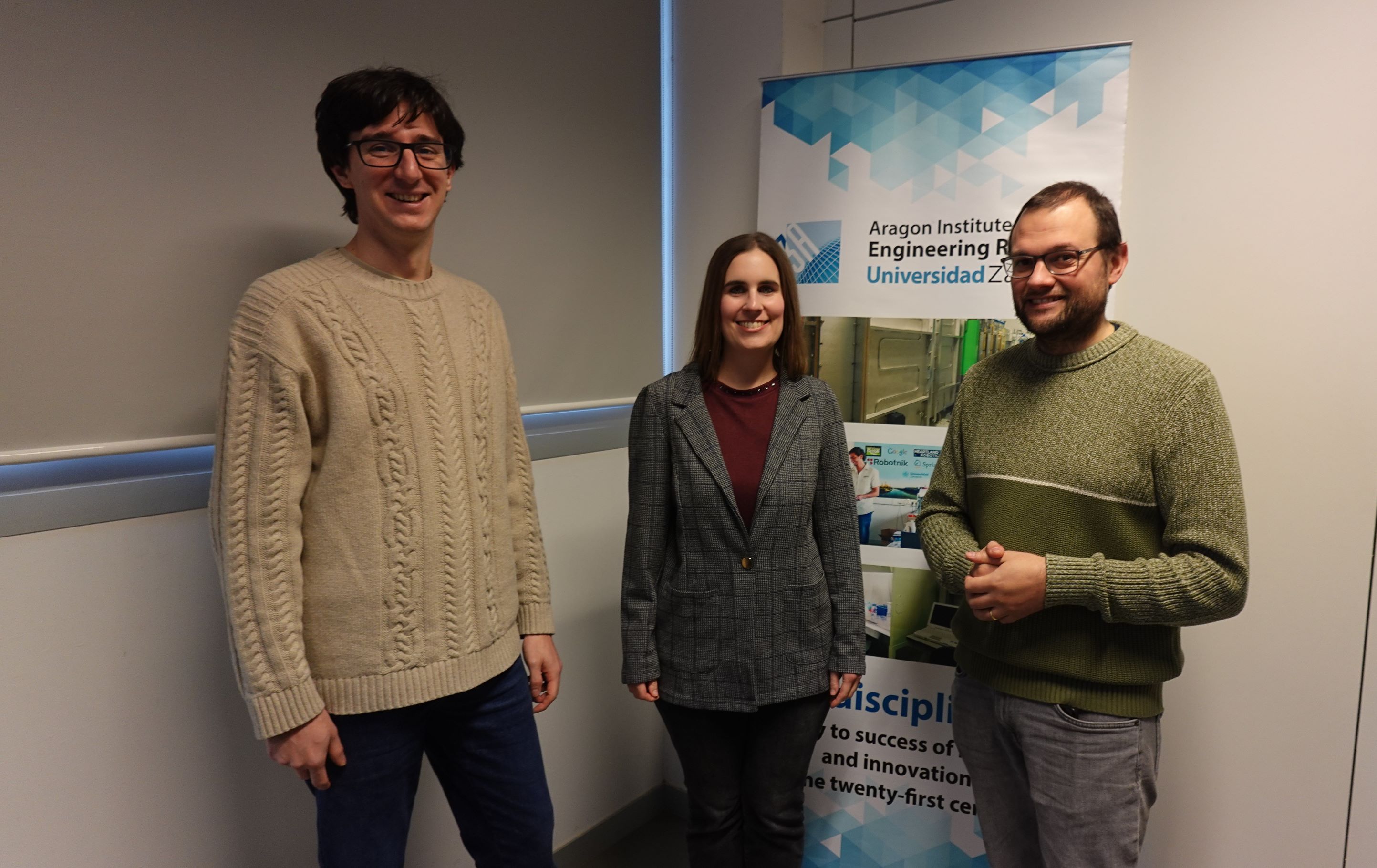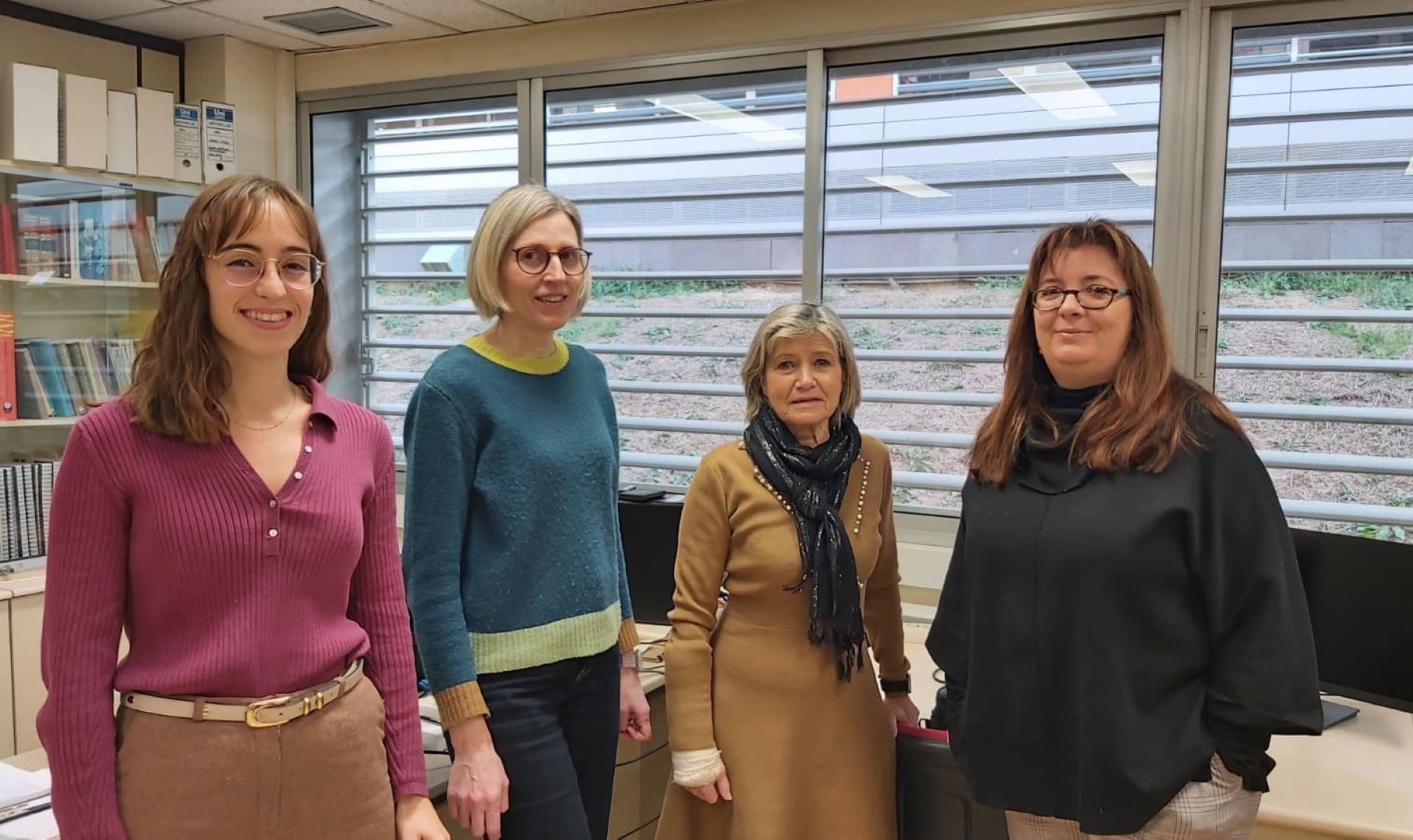
Once again this year, coinciding with the International Day of Women and Girls in Science, 11F, the Scientific Culture Unit (UCC) of the University of Zaragoza is launching the campaign "I am a scientist. I live in your neighbourhood", an initiative that aims to reflect the proximity and closeness of female scientists, to break counterproductive stereotypes and to be a point of reference so that girls and teenagers do not give up their scientific vocation due to misconceptions about the world of STEM studies.
An initiative that takes science to the streets, through photographs and videos in different parts of the city and spaces in schools, libraries, town halls and organisations in the three provinces. The 11 scientists can be seen at different moments in their lives, practising a hobby or in an everyday activity, from shopping, having a coffee, watching birds with binoculars, climbing, playing the piano, in a bookshop, recycling or reading in a newspaper library.
This project, now in its fourth edition, aims to show women researchers as real and close references. As the researcher Ana Lázaro Fernández, researcher of the GITSE group and deputy director of the I3A, says, "we are not extraordinary, we don't need to be, and we would like to be more. If you like science in any of its fields, don't close doors".
She is a chemical engineer, her line of research revolves around Thermal Engineering and Energy Systems in the Thermal Engineering and Energy Systems Group - Engineering Research Institute of Aragon (I3A-Unizar).
"I am very aware of how lucky I was in my environment. My parents instilled in my sister and me that we could study and dedicate ourselves to whatever we wanted, as well as the importance of being independent. My mother, a medical doctor and researcher, also helped us to grow up convinced of this", says Ana Lázaro.
She "as a child dreamed of being a dancer, not an engineer. I spent my afternoons at the dance conservatory without really knowing what engineering was. Both facets share discipline and passion. As the years went by, she opted for the sciences and, finally, "I chose chemical engineering because I had a speciality in the environment. Since my doctorate in air conditioning and energy efficiency in buildings, I moved more towards industrial and mechanical engineering. With the final degree project I discovered research and a couple of years later I discovered teaching. I loved both and, today, I feel very fortunate to be able to dedicate myself to them," she says.
Ana Lázaro was in charge of the presentation of the campaign this morning at the José Antonio Labordeta Park in Zaragoza. There, she recalled her beginnings and encouraged girls and teenagers to dedicate themselves to science "if that is what you like, in all areas from Social Sciences, Humanities and also Engineering, above all, never stop studying what you like".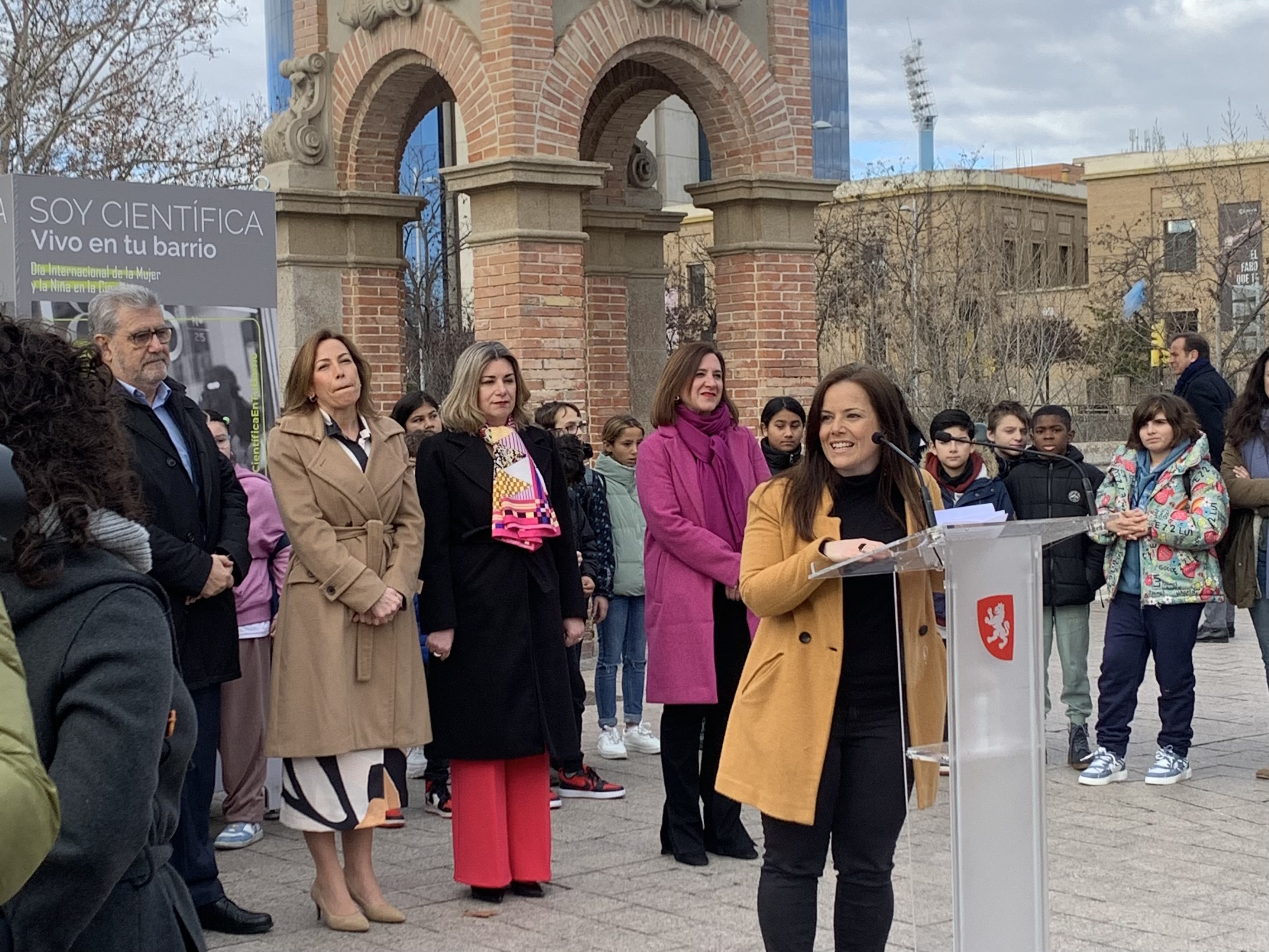
In her speech before the institutional representatives of the Government of Aragon, Zaragoza City Council and the University of Zaragoza, she stressed that in the year 2024 "although it may seem unbelievable, we are still far from being well represented in all areas of science". In the university classrooms, "there we are at 50 percent and even in some branches of knowledge we are above that, but there are others in which we are still a long way from the 30% that is established as the limit to be considered a minority. This is what happens to us in engineering, for example, and this is not good for anyone", stressed Ana Lázaro.
He stressed the need to carry out this type of campaign. "Something happens when we advance in the scientific career, there are a series of obstacles, glass barriers, as they also call them, which we have not yet managed to break completely and which mean that today only 25% of professors are women" and she called for these ceilings to continue to be opened, "changes are needed so that we learn to share roles and responsibilities not only at work but also in society, and institutional support is also needed for these changes to take place".
The exhibition "Soy Científica. I live in your neighbourhood" can be visited at the entrance of the José Antonio Labordeta Park until 10 March. In addition, the Scientific Culture Unit of the University of Zaragoza has programmed different activities that can be consulted on its website.. Programa de Actividades
This year's photographs were taken by the photographer Ana Marco.
The exhibition was inaugurated by the Regional Minister of Education, Science and Universities, Claudia Pérez; the Mayoress of Zaragoza, Natalia Chueca; the Rector of the University of Zaragoza, José Antonio Mayoral, the Vice-Rector for Science Policy, Rosa Bolea, and the Councillor for Culture, Education and Tourism of the City Council, Sara Fernández. The event was attended by 45 students from the 5th year of primary school Tenerías.
If you want to know more about the researcher and deputy director of the I3A Ana Lázaro Fernández, you can do so in this interview: “Those of us who dedicate ourselves to research get the reward and gratification of our own work”
